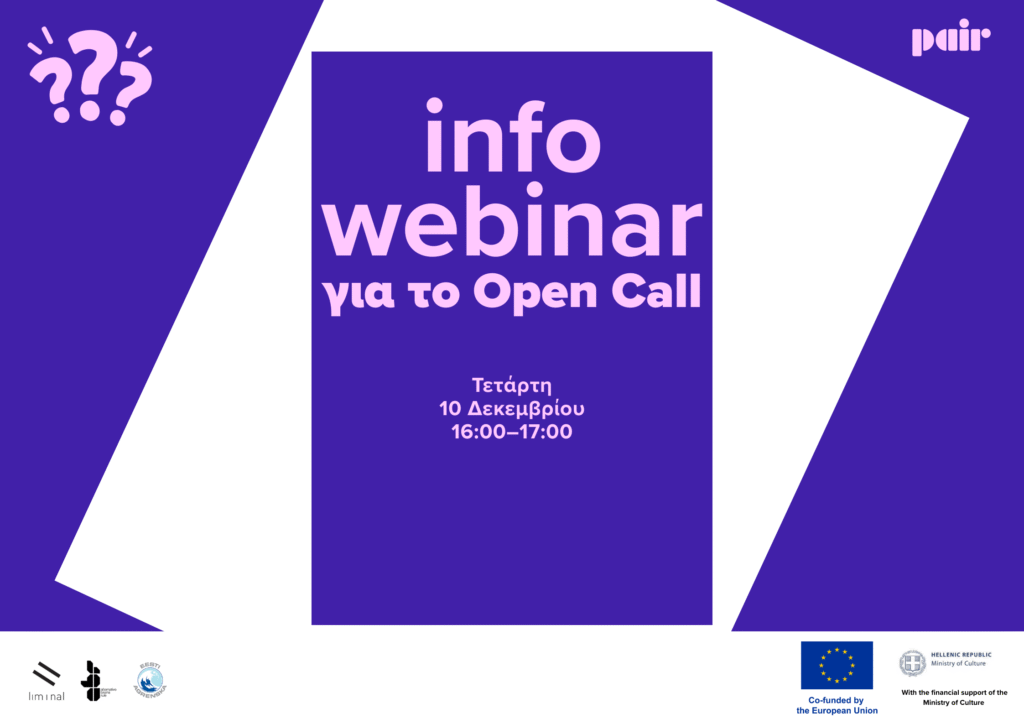Informative webinar on P.A.I.R.’s Open Call
Shape the Accessible Future of Art!

All you need to know about the project and the application process
If you want to learn more about P.A.I.R. (Paving Accessible and Inclusive Realities) and how you can participate, this is your opportunity! On Wednesday, 10 December, 16:00–17:00, liminal is hosting an online webinar to present the P.A.I.R. project in detail and provide all the necessary information about the application process.
If you are an artist (disabled or not) or an inclusive artistic team from across the arts and are interested in experimenting with accessibility tools and digital media to create works that open art to everyone, don’t miss this!
👉 Read the full open call here.
What will be discussed during the webinar?
In this informative P.A.I.R. webinar, you will will get to know:
- the organizations implementing the project: liminal (Greece), Alternative Brains Rule (Cyprus), Estonian Agrenska Foundation (Estonia),
- the goals, philosophy, and content of P.A.I.R.,
- more about the concept “Visible Encounters” of the Open Call,
- practical information on the Open Call and the application process.
At the end, there will be time for questions and discussion regarding the application process, timelines, budget, and support from the Collaborative Working Group (CWG).
👉 The webinar will be held in Greek with Greek Sign Language interpretation.
To register for the webinar, please fill out the form below:
Useful information
Date: Wednesday, 10 December 2025
Time: 16:00 – 17:00
Location: Online via Zoom (link will be sent upon registration)
Languages: Greek and Greek Sign Language
Cost: Free

This program is co-funded by the European Union under the Creative Europe call (CREA-CULT-2024-COOP-1) (Project code: 101173834). With the financial support of the Hellenic Ministry of Culture.
Views and opinions expressed are, however, those of the author(s) only and do not necessarily reflect those of the European Union or the European Education and Culture Executive Agency (EACEA). Neither the European Union nor EACEA can be held responsible for them.
